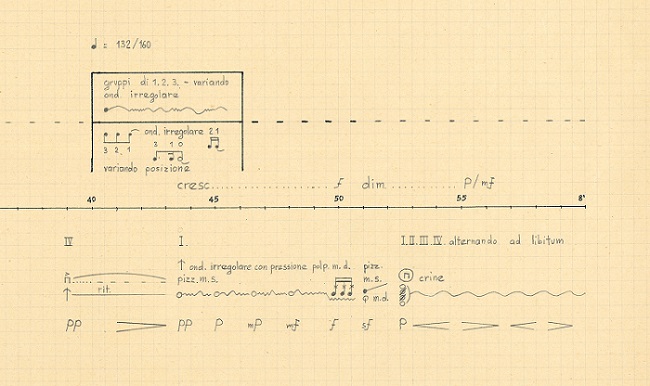
Articles
- Joanna E Helms, Telecoms, spaceship doors and singing animals: La Fantarca and Roman Vlad’s electronic music
- Laura Mazzagufo, Tre poesie di Montale by Roman Vlad: compositional techniques and text correspondences
- Jesse Rosenberg, Jan Meyerowitz and Musical Italy
- Antonio Marongiu, Electro-acoustic sound quality in instrumental music: Amply 1 by Franco Oppo
Documents and Reports
- Paola Cossu, Gian Francesco Malipiero, Esalazioni epurative
- Angela Carone, Publications and Activities
The fourth issue of Archival Notes is available for download and consultation on the OJS platform of the Fondazione Giorgio Cini.
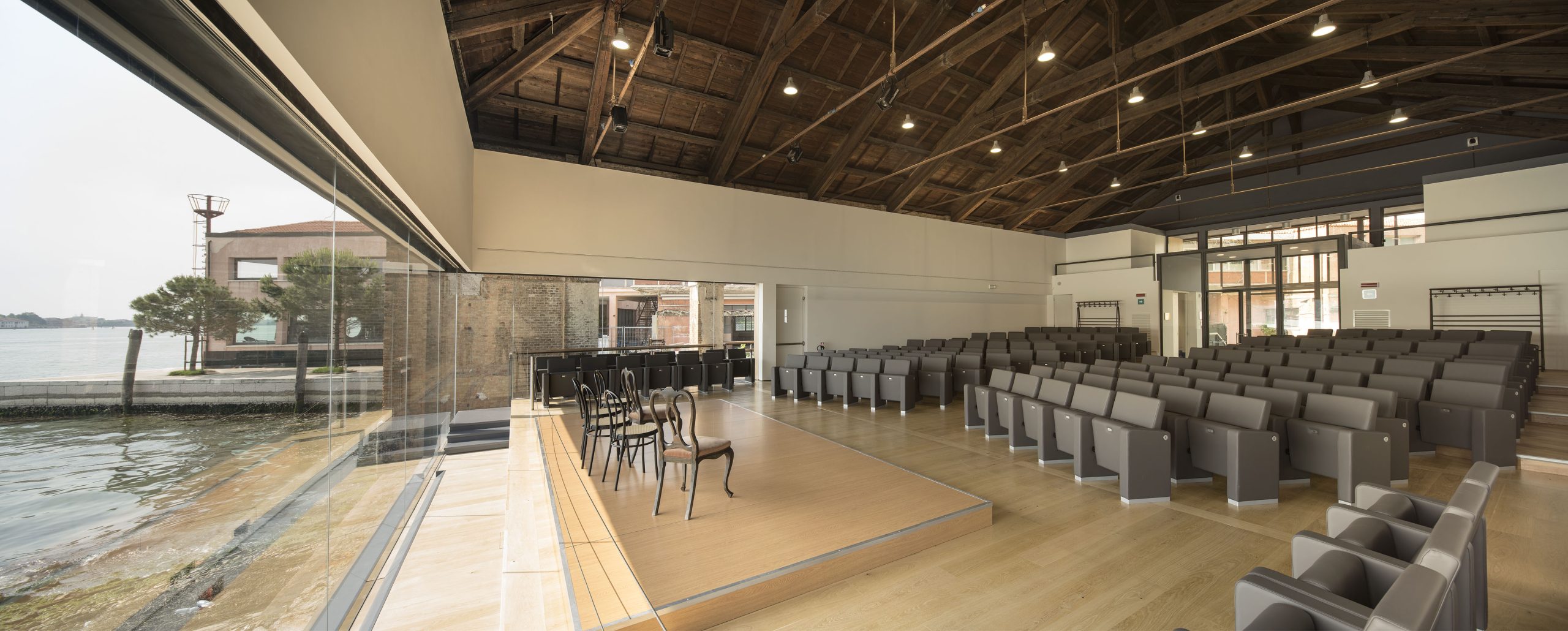
Within the activities of the National Committee for the celebrations of the centenary of the birth of Roman Vlad, on December 5, at 7pm, at the Auditorium “Lo Squero”, the pianist Carlo Grante will perform in a piano recital.
Programme
Arnold Schönberg, Sechs kleine Klavierstücke, op. 19
Ferruccio Busoni, Sonatina seconda
Roman Vlad, Opus Triplex
Free entrance
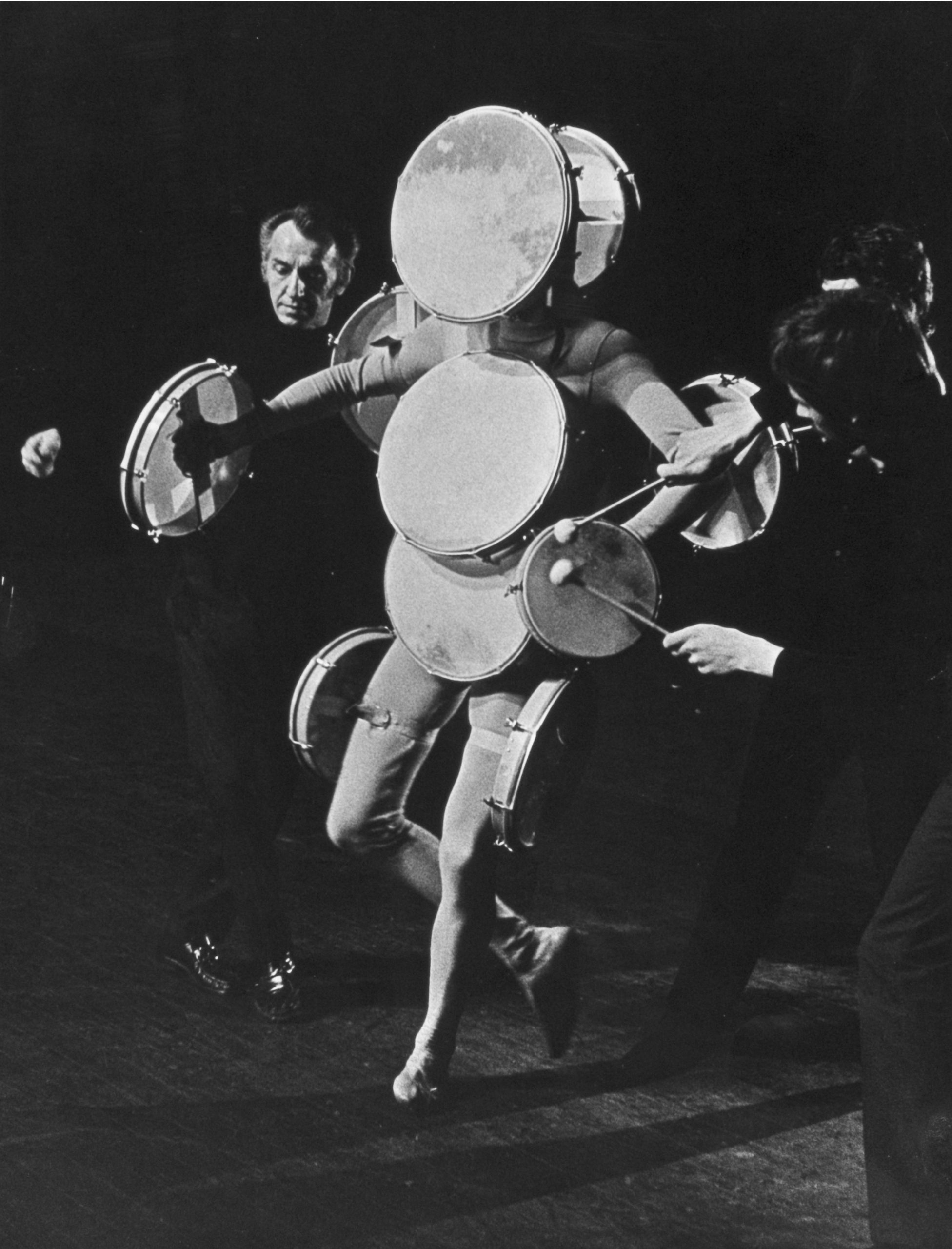
On 5 December, the featured publication, presented by Alessandra Carlotta Pellegrini and Jonathan Cross, will be the fourth book in the series “Musical Cultures of the Twentieth Century”: New Music Theatre in Europe: Transformations between 1955-1975, edited by Robert Adlington (Routledge, London, 2019). By considering a long list of 20th-century composers, from Berio to Birtwistle, Henze, Kagel, Nono and Zimmermann, the book examines their relationships with contemporary drama, the use of new technologies, the handling of political issues, new theatrical spaces, gestures in performances and challenges for analysis.
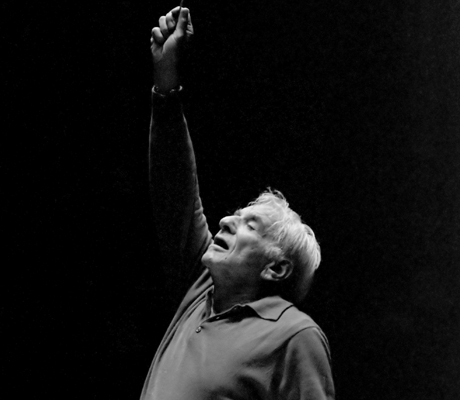
Developed in collaboration with the Fondazione Peter Maag (Verona) and the University of Rome-La Sapienza, this project, coordinated by Gianmario Borio, Nicola Guerini and Antonio Rostagno consists of a series of lectures on eighteen 20th-century conductors aimed at exploring their different interpretative, stylistic and technical approaches. The whole series will focus on the interpretation and performance of the 19th-century symphonic repertoire, from Schubert to Mahler. The main objective is to explore how thinking on the romantic symphony developed throughout the 20th century by reconsidering the formation and evolution of its musical image. In the Venice lecture, to be held in the Sala Giovanni Morelli in the Palazzo Malcanton Marcorà, Gianfranco Vinay (University of Paris 8) will discuss Leonard Bernstein and his interpretations of Mahler’s Symphonies.
Call for applications for 12 workshop scholarships
Deadline for submission of applications: 19 August 2019
The Percussione Crea-Azione Workshop, organised by the Institute of Music of the Giorgio Cini Foundation in collaboration with the Tetraktis Percussion ensemble, is addressed to percussionists with experience in ensembles, orchestras and/or as soloists.
It is also open to composers interested in improving their writing for percussion ensembles and the use of percussions.
A series of theoretical and musical practice sessions will focus on works of three composers whose fonds are preseved in the archive of the Institute of Music:
Giacomo Manzoni, D’improvviso for six/twelve percussionists (1981)
Niccolò Castiglioni, Cronaca del Ducato di Urbino for six percussionists (1991)
Fausto Romitelli, Chorus for six percussionists (2001)
The practice sessions will be led by the Tetraktis Percussion ensemble.
The theory classes will be held by Massimiliano Locanto (University of Salerno), Veniero Rizzardi (Ca’ Foscari University of Venice and “Cesare Pollini” Conservatory of Music, Padua) and Francisco Rocca (Giorgio Cini Foundation, Venice), and moderated by Gianfranco Vinay (Université de Paris 8). The composer Giorgio Battistelli will give a final statement to these sessions.
Research-led Performance: Percussione Crea-Azione Workshop
28 – 30 October 2019 Fondazione Giorgio Cini, Venice
Download call for papers
Download participation form
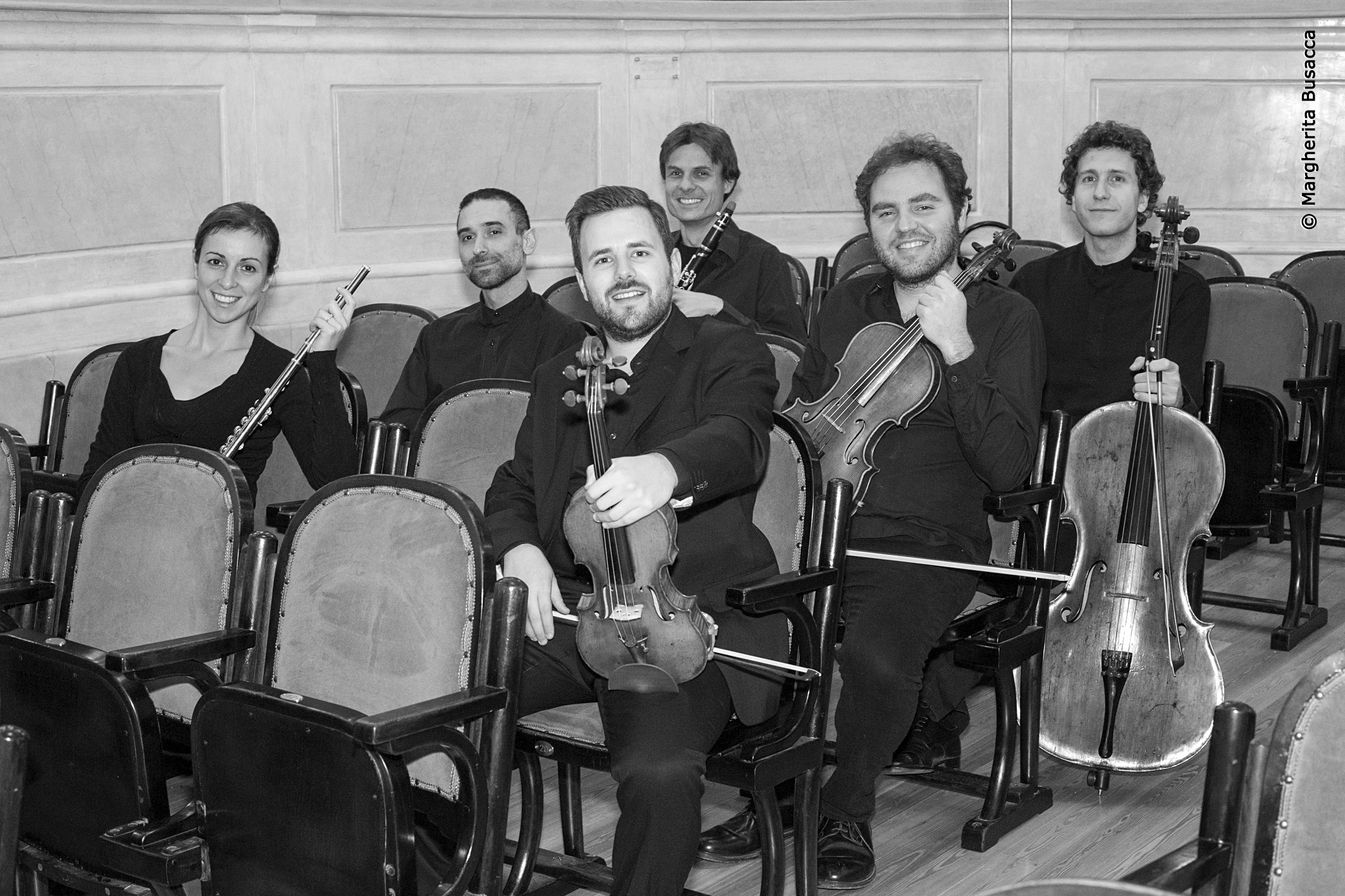
28 June 7pm
AUDITORIUM ‘LO SQUERO’
mdi ensemble
Sonia Formenti, flauto
Paolo Casiraghi, clarinetto
Lorenzo Gentili-Tedeschi, violino
Paolo Fumagalli, viola
Giorgio Casati, violoncello
Luca Ieracitano, pianoforte
Carolina Mattioda, soprano
Programma
Niccolò Castiglioni, Romanzetta (1990) per flauto
Aldo Clementi, Duetto (1983) per flauto, clarinetto e due strumenti in eco
Niccolò Castiglioni, Quattro liriche di García Lorca* (1954) per voce e pianoforte
Giacomo Manzoni, Preludio – “Grave” di Waring Cuney – Finale (1956) per voce, clarinetto e trio d’archi
Niccolò Castiglioni, Quattro canti* (1954) per pianoforte
Luciano Berio, O King (1968) per voce e cinque strumenti
* Manoscritto inedito. Fondazione Giorgio Cini, Fondo Niccolò Castiglioni.
Free entance
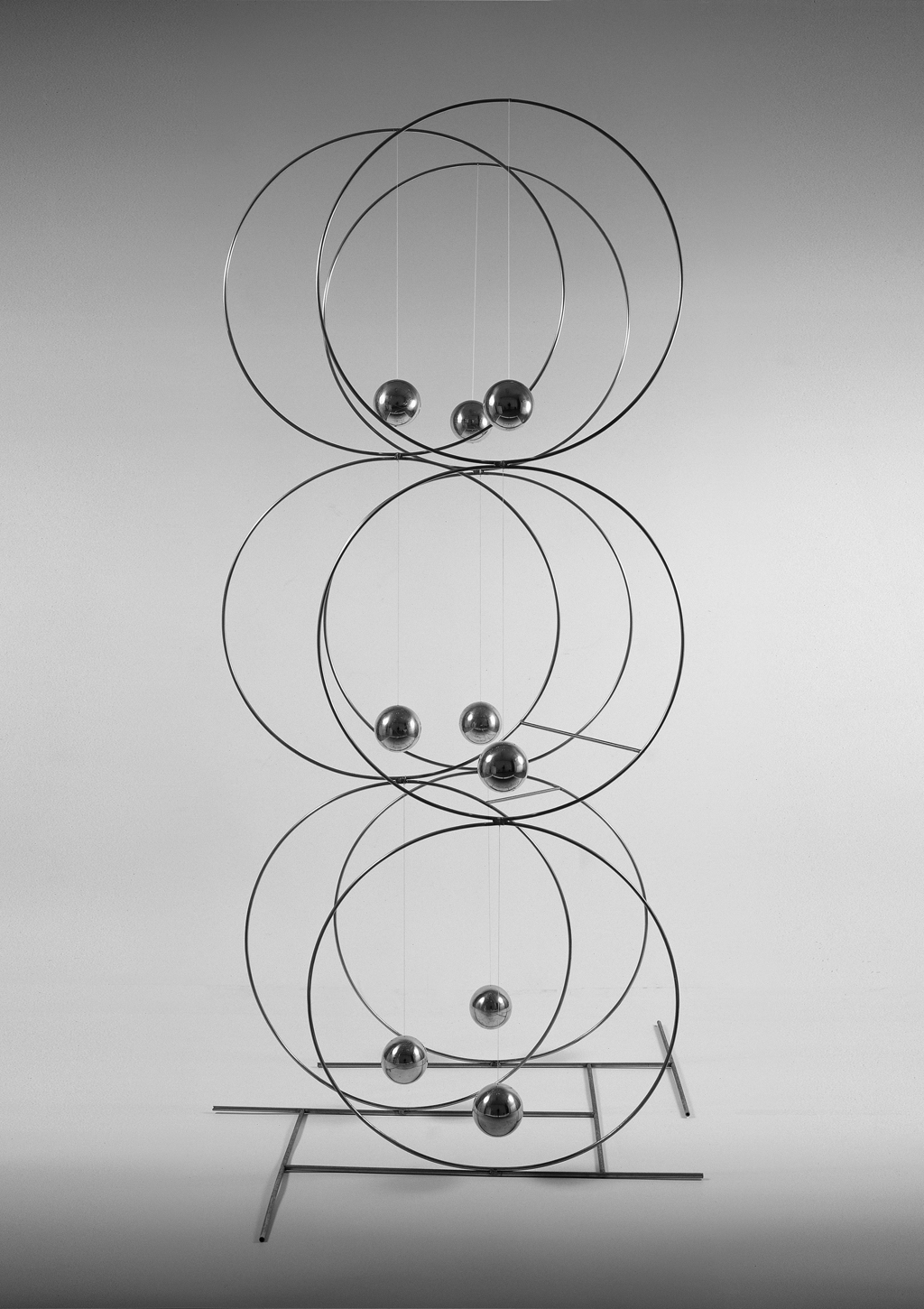
A Symposium organized by Gianmario Borio, Pascal Decroupet and Christoph Neidhöfer
This symposium cross-examines different concepts of harmony in selected instrumental, vocal and electroacoustic music composed in the first three postwar decades. The program features individual presentations on the construction and historical context of the harmonic language of particular composers, and concludes with a plenary roundtable discussion. Each presenter will respond to a catalog of questions that serves as point of reference towards the larger goal of the symposium. Our objective is (1) to understand harmony in its many manifestations across stylistic boundaries, (2) to tease out commonalities and differences in the harmonic languages of composers representing a shared school or common aesthetic, (3) to uncover harmonic concepts shared by music of different styles and aesthetics, (4) to review and coordinate the terminology on harmonic concepts to facilitate comparative study, and (5) to test the hypothesis of a history of musical composition along the lines of harmonic concepts.
Download brochure New Concepts of Harmony
28 June 7pm
Auditorium ‘Lo Squero’
Concert

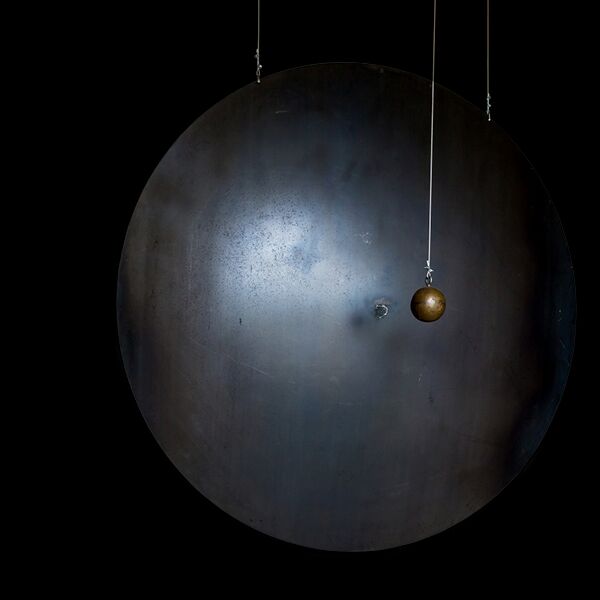
The Research-led Performance series of workshops, started by the Institute of Music in 2016, brings together musicological experts and performers in a process of mutual integration: on one
hand, performance practice is consolidated thanks to archival research acquisitions and theoretical study; on the other, academics can make use of the experience of performances to verify and refine their scholarly investigations. The workshop is for percussionists with experience of playing solo, or in orchestras and percussion ensembles, and composers interested in exploring the use of percussion in an orchestral or chamber composition. The three pieces selected for study are by composers whose archives are held by the Institute of Music: Giacomo Manzoni, D’improvviso, for six/twelve percussionists (1981); Niccolò Castiglioni, Cronaca del Ducato di Urbino for six percussionists (1991); and Fausto Romitelli, Chorus for six percussionists (2001).
The practical sessions will be led by the Tetraktis Percussioni Ensemble. Moderated by Gianfranco Vinay (University of Paris 8), the theoretical sessions will be conducted by Massimiliano Locanto (University of Salerno), Veniero Rizzardi (Ca’ Foscari University, Venice, and Cesare Pollini Conservatory, Padua), and Francisco Rocca (Fondazione Giorgio Cini).
Lastly, there will be a talk by the composer Giorgio Battistelli. The workshop will end with a concert by the Tetraktis Percussioni Ensemble.
From 6 to 8 June 2019 the Institute of Music at the Fondazione Giorgio Cini, Venice, in collaboration with the Quartetto di Venezia and the Bartók Archívum, Budapest, is holding a workshop for already established string quartets (2 violins; 1 viola; 1 cello).
The workshop aims to encourage the collaboration of composers, musicologists, instrumentalists and technicians in performances based on an in-depth study of the musical structures, the sources of the compositional process and the documentation of historical performances. It will be held in a context of research in order to convey an experience of compositional thinking, poetics and specific instrumental techniques.
Application deadline: 31 March 2019
Download the call
Download the registration form
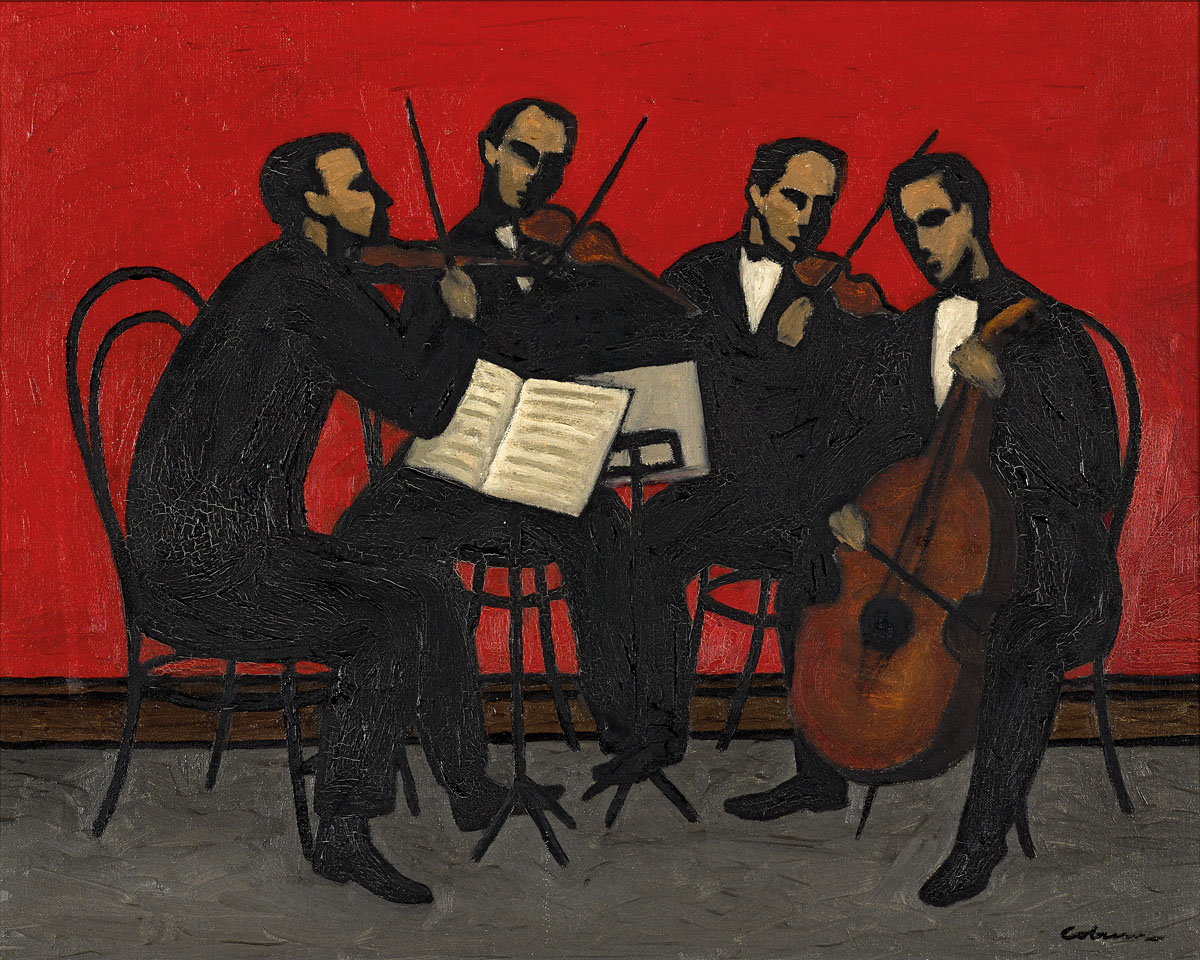
Workshop Research-led Performance: the String Quartets of Béla Bartók and Gian Francesco Malipiero
in collaboration with the Quartetto di Venezia and the Bartók Archívum, Budapest
String quartets occupy a key place in the musical oeuvre of both Béla Bartók and Gian Francesco Malipiero. In very distinctive personal ways, the two composers elaborated a concept of the quartet form and sonority that departed from the classical model and forged a new type of expression, often based on traditional folk music. The aim of the workshop is to explore the quartets of Bartók and Malipiero from a twofold theoretical and practical perspective and attempt to highlight possible stylistic and technical-performative convergences. The main focus will be on Bartók’s Sixth Quartet and Malipiero’s Seventh. The workshop will alternate practical aspects of performing and musicological research sessions. The instrumental part will be taught by the members of the Quartetto di Venezia, while the teachers in the musicological sessions will be Francisco Rocca and Lásló Vikárius.








